
-
 Haliburton leads comeback as Pacers advance, Pistons stay alive
Haliburton leads comeback as Pacers advance, Pistons stay alive
-
Bunker-cafe on Korean border paints image of peace
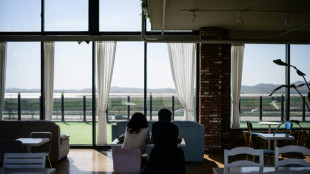
-
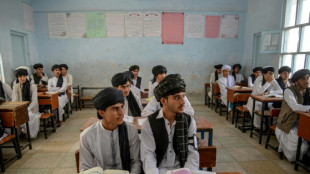 Tunics & turbans: Afghan students don Taliban-imposed uniforms
Tunics & turbans: Afghan students don Taliban-imposed uniforms
-
Asian markets struggle as trade war hits China factory activity
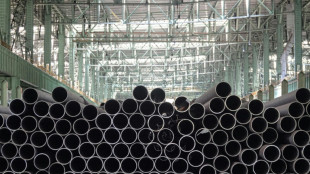
-
 Norwegian success story: Bodo/Glimt's historic run to a European semi-final
Norwegian success story: Bodo/Glimt's historic run to a European semi-final
-
Spurs attempt to grasp Europa League lifeline to save dismal season
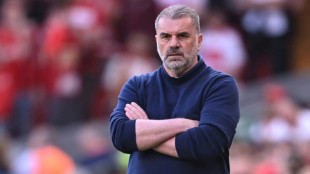
-
 Thawing permafrost dots Siberia with rash of mounds
Thawing permafrost dots Siberia with rash of mounds
-
S. Korea prosecutors raid ex-president's house over shaman probe: Yonhap
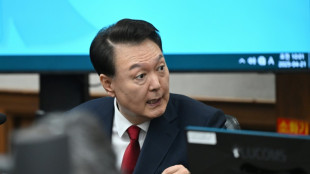
-
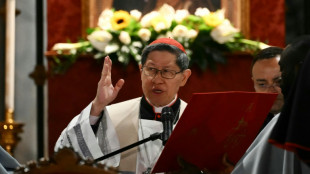 Filipino cardinal, the 'Asian Francis', is papal contender
Filipino cardinal, the 'Asian Francis', is papal contender
-
Samsung Electronics posts 22% jump in Q1 net profit
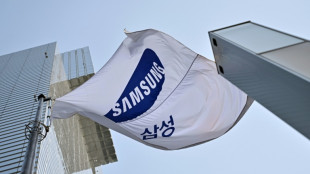
-
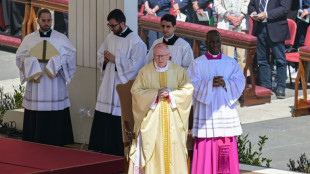 Pietro Parolin, career diplomat leading race to be pope
Pietro Parolin, career diplomat leading race to be pope
-
Nuclear submarine deal lurks below surface of Australian election
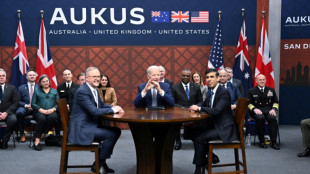
-
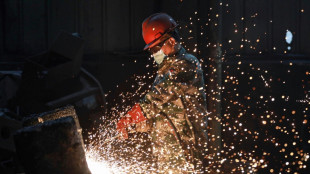 China's manufacturing shrinks in April as trade war bites
China's manufacturing shrinks in April as trade war bites
-
Financial markets may be the last guardrail on Trump

-
 Swedish journalist's trial opens in Turkey
Swedish journalist's trial opens in Turkey
-
Kiss says 'honour of a lifetime' to coach Wallabies at home World Cup

-
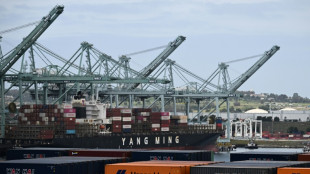 US growth figure expected to make for tough reading for Trump
US growth figure expected to make for tough reading for Trump
-
Opposition leader confirmed winner of Trinidad elections
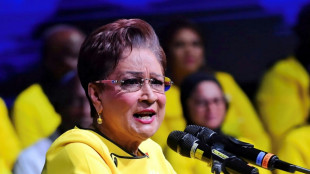
-
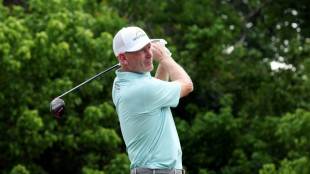 Snedeker, Ogilvy to skipper Presidents Cup teams: PGA Tour
Snedeker, Ogilvy to skipper Presidents Cup teams: PGA Tour
-
Win or bust in Europa League for Amorim's Man Utd

-
 Trump celebrates 100 days in office with campaign-style rally
Trump celebrates 100 days in office with campaign-style rally
-
Top Cuban dissidents detained after court revokes parole
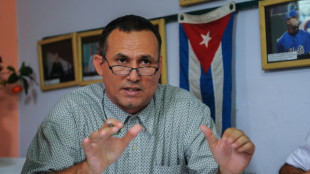
-
 Arteta urges Arsenal to deliver 'special' fightback against PSG
Arteta urges Arsenal to deliver 'special' fightback against PSG
-
Trump fires Kamala Harris's husband from Holocaust board

-
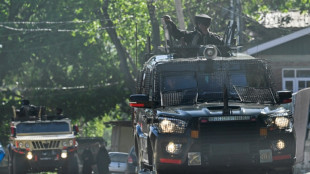 Pakistan says India planning strike as tensions soar over Kashmir attack
Pakistan says India planning strike as tensions soar over Kashmir attack
-
Weinstein sex attack accuser tells court he 'humiliated' her
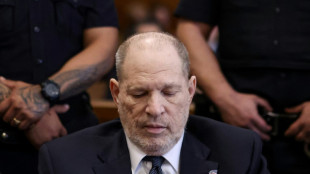
-
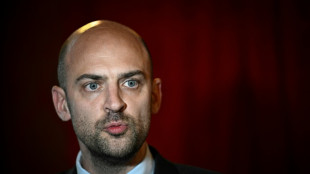 France accuses Russian military intelligence over cyberattacks
France accuses Russian military intelligence over cyberattacks
-
Global stocks mostly rise as Trump grants auto tariff relief

-
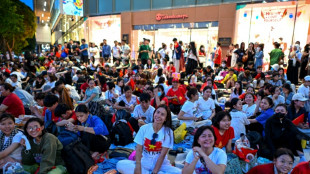 Grand Vietnam parade 50 years after the fall of Saigon
Grand Vietnam parade 50 years after the fall of Saigon
-
Trump fires ex first gentleman Emhoff from Holocaust board

-
 PSG 'not getting carried away' despite holding edge against Arsenal
PSG 'not getting carried away' despite holding edge against Arsenal
-
Cuban dissidents detained after court revokes parole
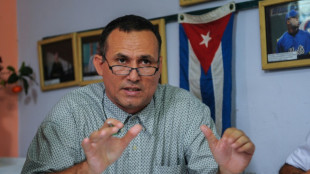
-
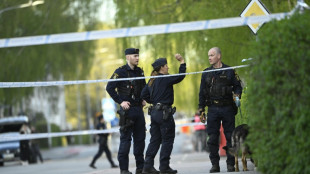 Sweden stunned by new deadly gun attack
Sweden stunned by new deadly gun attack
-
BRICS blast 'resurgence of protectionism' in Trump era
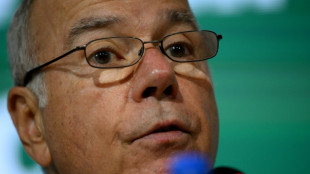
-
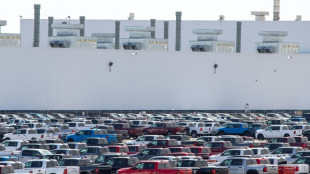 Trump tempers auto tariffs, winning cautious praise from industry
Trump tempers auto tariffs, winning cautious praise from industry
-
'Cruel measure': Dominican crackdown on Haitian hospitals

-
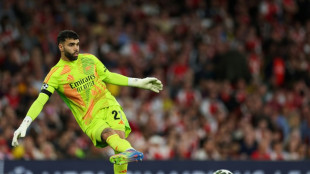 'It's only half-time': Defiant Raya says Arsenal can overturn PSG deficit
'It's only half-time': Defiant Raya says Arsenal can overturn PSG deficit
-
Dembele sinks Arsenal as PSG seize edge in Champions League semi-final

-
 Les Kiss to take over Wallabies coach role from mid-2026
Les Kiss to take over Wallabies coach role from mid-2026
-
Real Madrid's Rudiger, Mendy and Alaba out injured until end of season

-
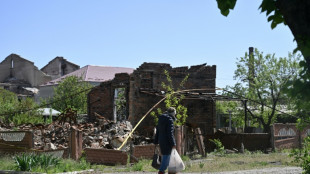 US threatens to quit Russia-Ukraine effort unless 'concrete proposals'
US threatens to quit Russia-Ukraine effort unless 'concrete proposals'
-
Meta releases standalone AI app, competing with ChatGPT

-
 Zverev crashes as Swiatek scrapes into Madrid Open quarter-finals
Zverev crashes as Swiatek scrapes into Madrid Open quarter-finals
-
BRICS members blast rise of 'trade protectionism'
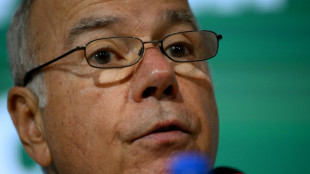
-
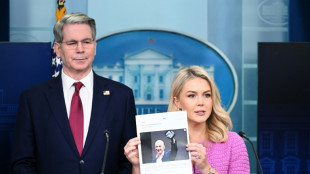 Trump praises Bezos as Amazon denies plan to display tariff cost
Trump praises Bezos as Amazon denies plan to display tariff cost
-
France to tax small parcels from China amid tariff fallout fears
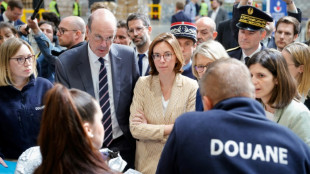
-
 Hong Kong releases former opposition lawmakers jailed for subversion
Hong Kong releases former opposition lawmakers jailed for subversion
-
Trump celebrates tumultuous 100 days in office

-
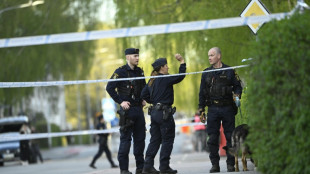 Sweden gun attack leaves three dead
Sweden gun attack leaves three dead
-
Real Madrid's Rudiger banned for six matches after Copa final red


Hungary's neutral war stance puts off Ukraine refugees
Like Kristina Novytska, most Ukrainian refugees in Hungary are keen to leave the country, whose nationalist leader's neutral stance on the war is an exception in the EU.
"I like Hungary so much... but I also saw how the Hungarian government thinks about us," Novytska told AFP at The Workshop, a shelter for refugees run by a Budapest resident.
The 39-year-old fashion designer fled Kyiv with her two-year-old daughter soon after Russia invaded Ukraine and now wants to look for work in an English-speaking country.
Despite Hungarian government claims of providing for hundreds of thousands of refugees, only an estimated 10 to 20 percent of Ukrainians stay more than a few days, according to relief organisations.
Personal networks abroad, language and job prospects are key in refugees' decisions where to go, aid organisations say.
But nationalist Prime Minister Viktor Orban's neutral stance on the war, as well as his moves to dismantle the system supporting asylum seekers and refugees are additional push factors.
- 'Uncomfortable' -
"It's as if the government would like refugees in general to avoid Hungary," said Viktoria Horvath of Migration Aid, which runs a help desk in the government-run BOK aid centre in Budapest.
In the vast centres, dozens of volunteer staff outnumber refugees by far.
United Nations data estimates that more than 620,000 Ukrainian refugees have crossed into Hungary since the invasion on February 24.
But according to official Hungarian data, only around 20,000 have applied for "temporary protection" that grants them access to the local health and social insurance systems.
In the days after the invasion, Orban described Hungary as "a good friend of Ukraine" and said his government would help Ukrainians -- contrary to its usual anti-refugee stance that has seen the country push back on asylum seekers, mostly from the Middle East and Africa.
At the same time, Orban, who has sought close ties with Vladimir Putin in recent years, has avoided naming the Russian leader as being responsible for the war.
Orban has sent aid to Ukraine, but he has refused to send weapons, saying it could draw Hungary into the conflict.
This "stay out" approach is seen as having propelled him to a fourth straight term in office in another landslide win last month.
His stance has not won him praise among the leadership in Kyiv.
Ukrainian President Volodymyr Zelensky told Orban in a video message in March that "once and for all, you should decide who you are with".
Hitting back during an election day victory speech on April 3, Orban described Zelensky as an opponent, a remark met by cheers from his supporters.
Most recently, Orban has said he would not be able to support an EU oil embargo, citing Hungary's dependence on Russian imports.
"Ukrainians do tend to feel uncomfortable here," said Anya Yelina, a university dance and choreography teacher from Kyiv, who came to Hungary in early March.
"The problem is that Orban is pro-Russian, and everyone among the refugees is talking about it constantly," added the 25-year-old, whose brother has worked in Hungary for three years but now also wants to leave.
- 'Demolished' asylum system -
Some of the animosity is rooted in the two countries' recent history.
Budapest has in recent years complained about what it sees as discrimination of a large Hungarian minority in western Ukraine, discouraging them to speak their language.
Since the invasion, pro-Russian narratives relativising Moscow's aggression have also been prominent on Hungary's heavily pro-Orban public media.
"There are millions of people (in Hungary) watching TV channels or reading news that are actually following the Kremlin line," Patrik Szicherle, an analyst, told AFP.
In a poll last month, market researcher Ipsos found that 67 percent of Hungarians agree that "the problems of Ukraine are none of our business, and we should not interfere".
It was among the highest of the 27 countries polled, and well above the average of 39 percent.
Unlike in nearby Poland or the Czech Republic, there have also been no large solidarity rallies against Russia's invasion.
The problem for Ukrainian refugees is also institutional.
Hungary "demolished" its asylum system in recent years, which makes it harder for Ukrainians to integrate, according to Aniko Bakonyi of the Hungarian Helsinki Committee, a refugee rights group.
Since 2015, fences were built on Hungary's southern borders, and refugee camps shuttered.
Police are also obliged by law to physically "push back" migrants across the borders, while asylum seekers since 2020 can only submit applications at embassies abroad.
"The open border with Ukraine and humanitarian aid is the right way, but refugees need to see a perspective, and a holistic system of services to integrate in a new home," Bakonyi said.
C.Garcia--AMWN